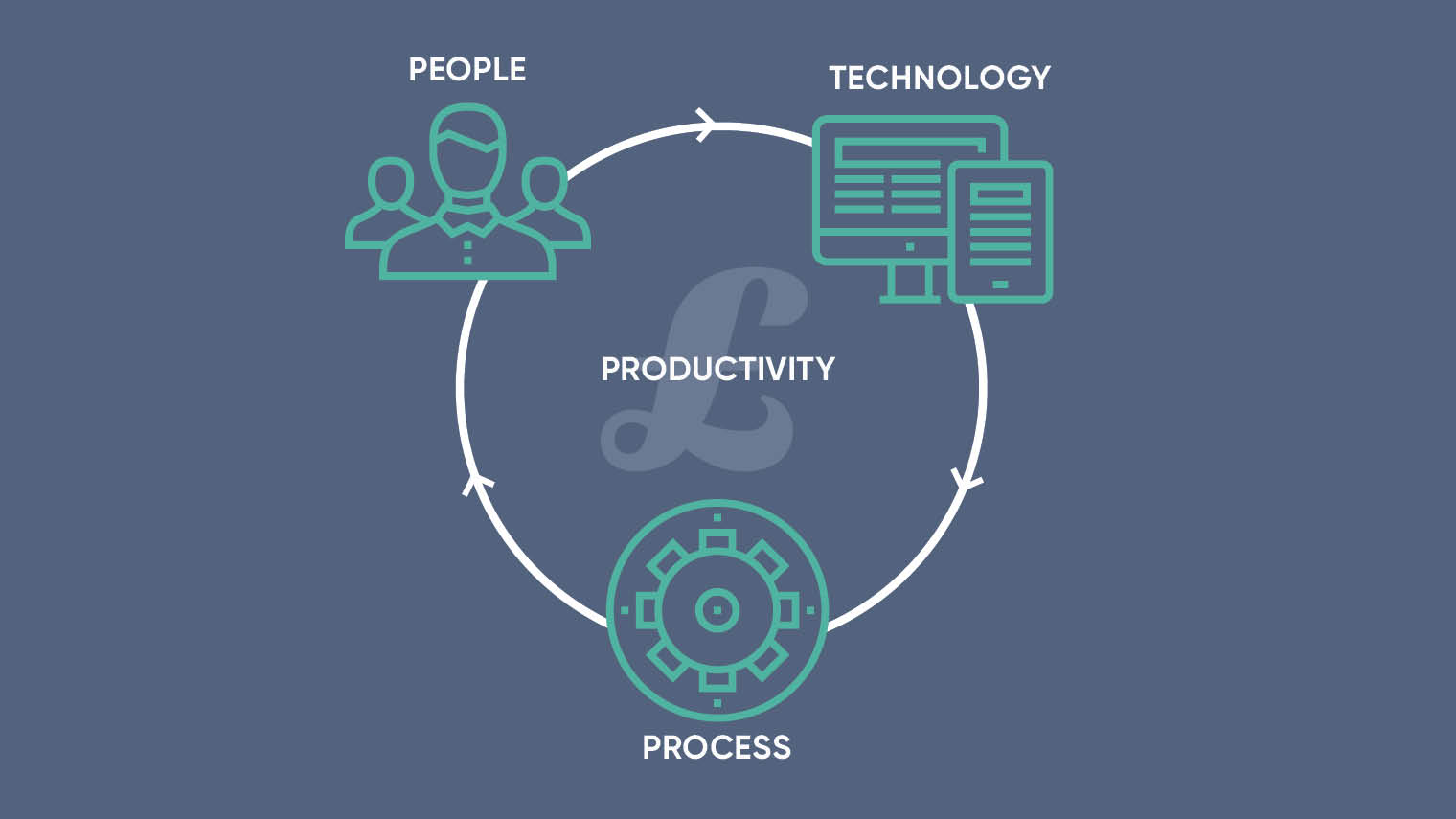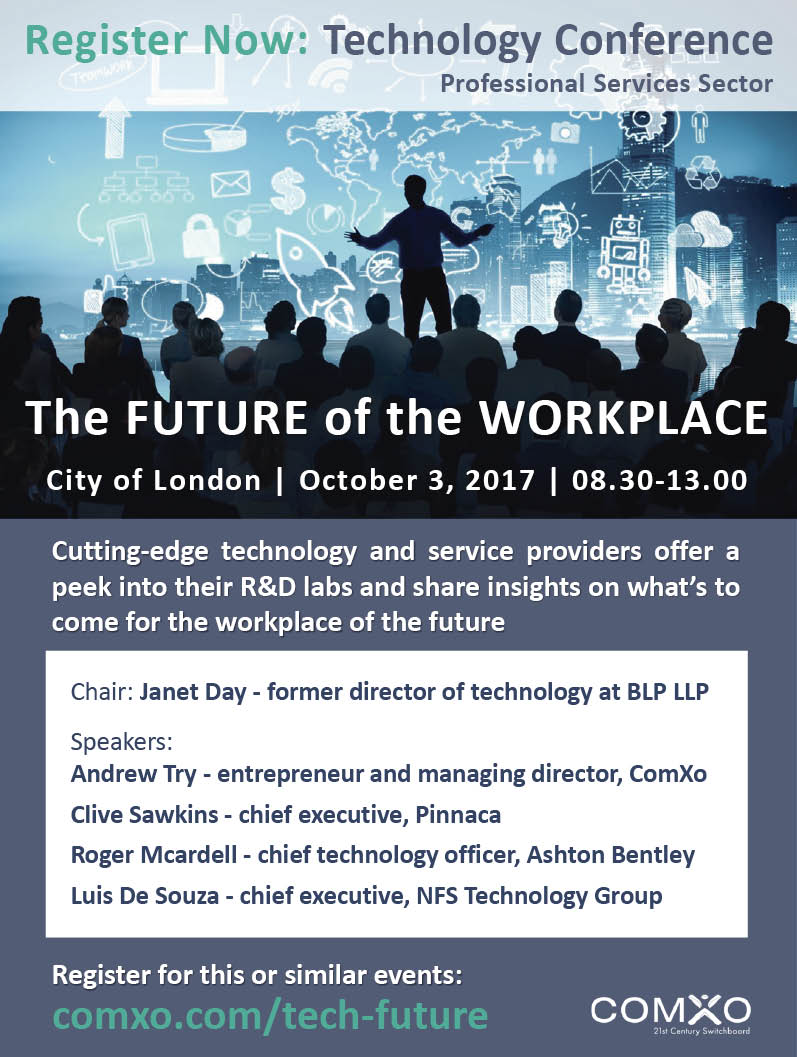If you stop and think about it, it’s a strange point in time we seem to have reached. Right now corporate life is supposed to be exciting, it’s supposed to be fast paced, ever-changing and even dynamic. And yet, you only need to look at some of the statistics around productivity to realise that the reality is the very opposite.
Whether it’s official stats that rank the UK one from last in the G7 for productivity (UK output is 19 per cent worse than the G7 average, with only Japan ranked lower), to data showing the amount of working time lost through interruptions, checking our mobile devices and other office distractions, the real picture of the UK’s workplaces is one of disruption, disengagement and stifling archaic processes. In fact, it’s not too much of a stretch to suggest modern workplaces are actually causing a form of productivity paralysis.
It’s a situation that has the best brains struggling to answer. In his new book, Time, Talent, Energy, Eric Garton, a partner at Bain & Company, talks about falling productivity in terms of organisational drag. Even the very best firms suffer from it, never managing to have less than a 10 per cent drag.
But, while he describes drag as something which may be inevitable, caused by organisational processes and procedures – something all organisations have to contend with to some extent – he also argues that the very worst examples don’t have to be inevitable, after all companies such as Google and Apple are 40 per cent more productive than lower-quartile performing companies.

REDUCE FRICTION
At ComXo, we share a similar analogy about productivity. We talk about helping clients reduce the friction that stops companies from performing at their best; for it is friction, typically from using outdated processes, that we believe is the root cause of organisational drag.
Friction is the 200-plus e-mails that the average executive receives each day, so a full day a week is spent – some would say wasted – simply reading and replying to these communications. Friction is the interruptions that people consistently struggle with at work, be it from mundane administrative tasks to unwanted sales calls.
Such friction takes place whether staff are in an office or whether they’re working remotely, struggling with technology or access to information, which is perhaps why agile working is yet to take off as predicted.
Friction also occurs because people still work in silos, using handed-down processes that are never questioned. Time is wasted trying to work around these processes, rather than improving them.
We often discover friction at our clients’ workplaces where broken switchboard processes, such as wrongly directed calls or false information, are causing unnecessary distraction for staff. This can have as great an impact as e-mail overload.
TECH IS NOT ENOUGH
Up until now employers and employees alike have been going down a road where we’ve hoped technology would be the solution. We’ve tried to get an app for everything, hoping it will solve our productivity issues, but we use them a few times then simply revert to our old ways. Technology alone hasn’t entirely worked and so we need a different approach.
Productivity is very much about people, process and technology, and how to get the three to work together as best as possible
We’ve reached a point where we should have the ability to work so much better, but ironically now we need to regain our control of technology, so that it works for us and not the other way around.
REVIEW PROCESSES
So what’s the answer? Lots of organisations will focus on their productivity problem through training or hiring specialist staff, or implementing new technologies. Admirable as this is, these gains aren’t always obvious or sustainable without the right processes in place.
At a recent IT conference in the City of London, a panel speaker remarked: “Productivity is very much about people, process and technology, and how to get the three to work together as best as possible.” This is a philosophy we can only agree with.
From our own experience, this approach works well when applied to the corporate switchboard function. We map organisations’ processes, including how they handle external and internal call flows, and deliver in-sourced or outsourced solutions to make them more efficient, whether it’s first fielding calls to workers or taking admin instructions on behalf of staff so their time is freed up to focus on important tasks.
It’s not uncommon for our clients to report 30 per cent productivity improvements. Few improvement programmes could offer such striking results. We achieve this by stripping out the worn and the cumbersome, and putting in new cogs that turn the wheels of business more smoothly.
TIME FOR CHANGE
It may sound simple, but we re-engineer and simplify business processes to empower employees to be more productive by focusing on their core tasks.
The truth of the matter is that most employees do want to perform to their best ability in the workplace. They do want to do a good job and they do want to feel they’re achieving. To help more staff achieve this, future workplaces will need to take the issue of productivity much more seriously. They must dismantle their own inefficient processes and accept the old ways of working were just that – old.
FUTURE IS BRIGHT
The best part of all this is that productivity can be rescued. By making processes much less complicated, the benefits of increased productivity won’t just be a greater, more rewarding output, it will also be seen in people’s wellbeing too, in their physical and mental health, and their ability to have more thinking time, which leads to brighter and more exciting ideas.
Let’s all agree, poor productivity doesn’t have to be the best we can hope for. We should all be striving for much more than that.
ComXo is the leading provider of outsourced switchboard services to professional service firms across the City of London and beyond. Skilled operators, assisted by world-class technology, provide bespoke switchboard services, fit for the professional service firm of the 21st century. www.comxo.com

